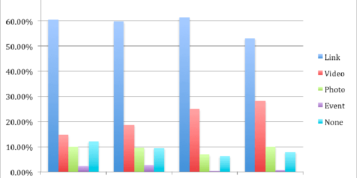Facebook-owned WhatsApp is launching a new feature that will label messages within the app that have been forwarded so users will know they weren’t composed by the sender. In an official blog post, the company says the feature will help make group chats and one-on-one conversations easier for people to follow and allow users to discern the original sender of a message. It will apply to text, videos, audio messages, and images. They also took the opportunity to encourage people to think carefully before sharing forwarded messages.
The news comes shortly after the platform was directed by the Indian government to act immediately to prevent misuse. The country has recently seen the spread of rumors and fake news through the platform at levels that have spurred mob violence. Meanwhile, in Brazil, yellow fever vaccine misinformation spread by the app is being blamed for the resurgence of the disease there in unprecedented numbers. The app has more than 300 million users between the two countries combined.
WhatsApp is hoping to curb the spread of hoaxes and incendiary rumors, but they’re also trying to walk a fine line and keep the privacy they’re known for intact. WhatsApp’s Carl Woog recently told a panel at the International Fact-Checking Network’s Global Fact Checking Summit that WhatsApp won’t be labeling messages with their original composer for privacy reasons. All messages are automatically encrypted on the platform, so even employees can’t see where fake news gets started. WhatsApp is also offering cash rewards to researchers who study the spread of misinformation through the app.
Messenger to offer more transparency about message origins
Facebook’s Messenger is taking a similar approach, with reports surfacing that Facebook is testing a feature for the service that will let people who receive random messages know they were sent from recently-created accounts. In addition, the phone number linked to the account will be used to identify the message’s origin.
Labeling the country of origin via the phone number on messages could prove particularly useful in the wake of the Russian state-sponsored misinformation campaign aimed at sowing political division. It could also help prevent scenarios wherein, for example, someone tries to impersonate a friend to ask a person to send them money.
Insiders who have seen a direct message with the new messenger warning also report that in addition to the fact that an account was recently created and the phone number connected to it came from Russia, it also warned that the unsolicited user is not the same person as the user’s Facebook friend who has the same name. Clever scammers may find ways to skirt the new protections, but it won’t be as easy as before to take advantage of people.





